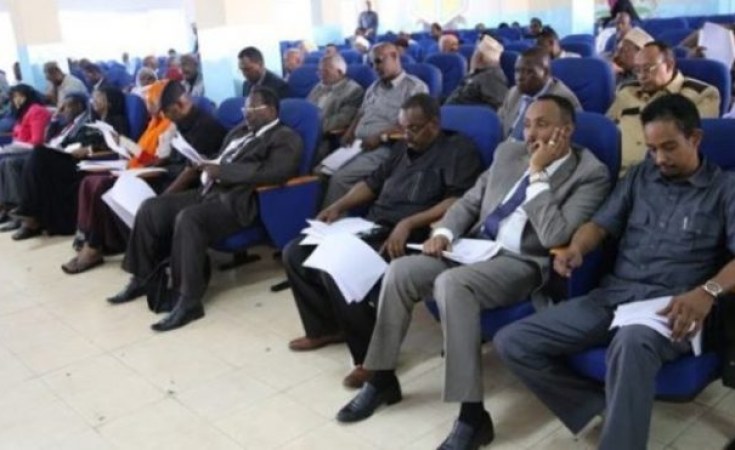On Monday, Somalia's Upper House convened its regular session with a sharp focus on the future of the Somali shilling and the urgent need to print new banknotes.
The session, chaired by Acting Senate Speaker Abdullahi Ali Hirsi Tima'Adde, who also serves as the first deputy speaker, highlighted the pressing issues surrounding the country's financial reforms, particularly in light of the recent introduction of sales tax.
Senator Ibrahim Aw-Gaab Osman, Deputy Chairman of the Senate Finance Committee, led a comprehensive discussion on the history of the Somali shilling and its current status.
He emphasized the critical importance of addressing public concerns regarding access to and the usability of the national currency, urging lawmakers to prioritize these issues.
The Somali shilling has had a turbulent history, mirroring the country's own challenges over the past decades. After the collapse of the central government in 1991, the value of the Somali shilling plummeted, leading to widespread use of foreign currencies, particularly the U.S. dollar, in the country's main economic hubs.
The lack of a stable and widely available national currency has remained a significant challenge for the Somali economy.
In recent years, however, Somalia has seen a resurgence in efforts to stabilize its financial system, with a focus on reviving the Somali shilling as a reliable medium of exchange. Despite these efforts, the scarcity of the shilling in circulation, particularly in regions outside the capital, has forced many to rely on digital transactions and mobile money services provided by local telecommunications companies like Hormuud and Somtel.
The widespread adoption of mobile cash services has revolutionized day-to-day transactions in Somalia, making it easier for people to conduct business without physical currency. However, this shift has also highlighted the diminishing role of the Somali shilling in the country's economy.
In some regions, the shilling is virtually non-existent, leading to concerns about the long-term viability of the national currency.
During the Senate session, several senators voiced their worries about the scarcity of the Somali shilling and called on the government to take immediate steps to print new currency.
They stressed that a stable and widely available national currency is essential for economic stability and growth. The senators argued that without a robust and reliable currency, Somalia's financial reforms, including the newly introduced sales tax, would face significant challenges.


